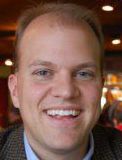A day for heroes
Published 12:00 am Saturday, September 6, 2014
The pager grabbed her attention, but she already knew. Everyone knew. Within moments after the first plane crashed into the World Trade Center, news broadcasts interrupted regularly-scheduled television and radio, forever signaling September 11, 2001 as a pivotal day.
My cousin, Donna, a registered nurse from West Orange, New Jersey, served on an emergency medical squad that day. So when the official word arrived, when her pager lit up like Rockefeller Center’s Christmas Tree, Donna responded.
Donna daringly crossed the bridge into New York City. As black smoke and debris filled the air, Donna worried about what she would find on the ground. She would spend the next several days continually working alongside other emergency responders searching for survivors. Along the way, the world watched.
Day by day, answers to our horrified questions began to unfold. But something else began to emerge: the new face of a “hero” for today’s world.
The emergency responders on September 11, 2001 were undoubtedly heroes. Across the United States, a wide consensus quickly affirmed this reality, and no one would dare challenge the notion.
So why dub such people as “heroes?” My answer: instead of escaping a hazardous situation, these people bravely ran into the snarls of danger for the sake of other people. From my humble perspective, this ought to be society’s measuring stick for determining our heroes.
When the situation’s intensity reaches cataclysmic levels, our society’s appreciation for the stereotypical hero seemingly rises.
For example, think back to the bombings at the finish line of the Boston Marathon last year. Immediately following the explosions, people understandably fled the scene for their own safety. Yet many people ran closer, knowing only the need for assistance beckoned. Those heroes offered first aid, problem-solving, and solace in the midst of fear.
Let’s be clear. Heroes rise to the surface in non-emergency situations also. We ought to appreciate the people who take risks, venture into dicey settings and sacrifice their comfort.
In neighborhoods and communities of every kind, dire situations hold vulnerable people in a tight grip. We would do well to look for these heroes and celebrate them, too.
Notice the single parent who, instead of heading for the door, insists on providing a roof.
Notice the volunteer coach who, instead of watching the game on television, leads at-risk youth on the field.
Notice the caregiver who, instead of insulating one’s self from pain, remains steadfast to people struggling to recover.
Notice the benevolent giver who, instead of ensuring his or her own security exclusively, generously finds ways to extend resources, time, and energy so that others can find more solid footing.
These are our heroes as well. After all, we need heroes in service uniforms, and we need heroes next door. We needed heroes yesterday, and we will need heroes tomorrow.
For today, let us say “thank you” to all of the women and men who courageously look for those in need.
The Rev. Dr. Mark Conforti is the senior pastor at First United Methodist Church in Salisbury. He can be reached at mark@fumcsalisbury.org




